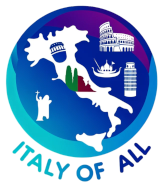The province of Matera, located in the Basilicata region of southern Italy, is renowned for its historical and cultural significance, particularly for the city of Matera itself, which is famous for its ancient cave dwellings known as “Sassi”. This area has gained international recognition for its unique landscape and architectural heritage, which has been designated a UNESCO World Heritage Site.
Geographically, Matera province is characterized by varied landscapes that include the rocky terrain of the Sassi, expansive plateaus, and fertile valleys conducive to agriculture. The rugged terrain, interspersed with ancient cave systems and traditional stone houses, creates a striking visual contrast that attracts photographers and filmmakers from around the world.
Historically, Matera has been inhabited since the Paleolithic period, making it one of the world’s oldest continuously inhabited cities. The Sassi of Matera, cave dwellings carved into the limestone, were originally inhabited by monks and later by local peasants until the 1950s. These caves, along with the rock churches adorned with Byzantine frescoes, tell the story of a region shaped by harsh living conditions and resourcefulness.
Culturally, Matera is a treasure trove of traditions and history. The city and its province host numerous festivals and events that celebrate local folklore, religious traditions, and contemporary culture, including the famous “Festa della Bruna”, a centuries-old festival held annually in honor of the Madonna della Bruna.
Cuisine in Matera is deeply rooted in its agricultural heritage, with a focus on simple, hearty dishes that utilize local ingredients such as bread, peppers, beans, and pork. Matera bread, known for its distinctive shape and flavor, is a staple of the local diet and is celebrated in its own right. Pasta dishes, particularly those made with durum wheat pasta like “orecchiette,” are commonly served with hearty vegetable or meat sauces.
Economically, Matera’s economy has traditionally been based on agriculture, with the cultivation of wheat, barley, and vegetables, as well as pastoralism. In recent years, tourism has become a significant sector, spurred by the city’s unique cultural landscape and its exposure on the global stage, including its designation as a European Capital of Culture in 2019. This has led to a growing hospitality industry, with an increase in hotels, restaurants, and tourist services.
Despite challenges related to economic development and infrastructure, the province of Matera has embraced its heritage while looking to the future, promoting sustainable tourism and cultural activities that honor its history and attract visitors from around the globe.
Overall, the province of Matera offers a compelling mix of ancient history, cultural depth, and natural beauty, making it a distinctive and valued part of Italy’s cultural and economic landscape. Its ongoing efforts to balance preservation with modern development continue to make it a fascinating destination for both Italians and international visitors.
Comuni in Matera:
